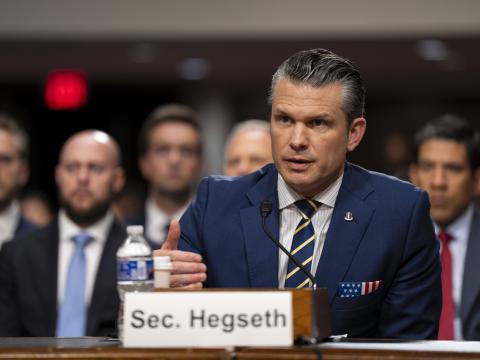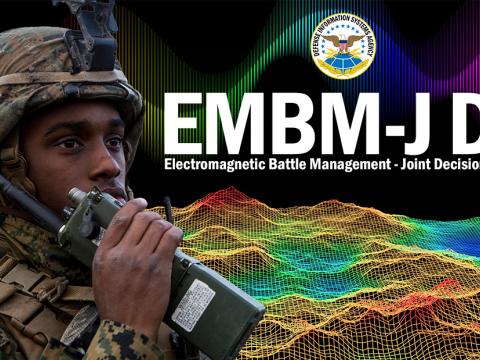Marine Corps Technologies: Fielding for the Fight
The U.S. Marine Corps finds itself in the unique position of sharing attributes of all the other military services. That has helped the Corps procure technologies in that it can learn from and adapt some systems developed by other services. However, the Corps has its own unique situations and requirements, so it finds itself pursuing Marine-specific solutions to modern challenges. SIGNAL's April issue looks at Marine Corps technologies as the multifaceted service girds for the fog of future combat.
The U.S. Marine Corps finds itself in the unique position of sharing attributes of all the other military services. That has helped the Corps procure technologies in that it can learn from and adapt some systems developed by other services. However, the Corps has its own unique situations and requirements, so it finds itself pursuing Marine-specific solutions to modern challenges. SIGNAL's April issue looks at Marine Corps technologies as the multifaceted service girds for the fog of future combat. Leading off this report is an article on Marine Corps command, control, communications and computers (C4). In Security, Regionalization Dominate Marine Technology Needs, Maj. Gen. (s) George J. Allen, USMC, head of Marine Corps C4, explains major changes going on with Corps information technology, foremost of which is a greater reliance on civilian Marine personnel for many Marine Corps information system functions, among other developments. Moving new technologies into the Marine Corps' battlespace is the purview of the Marine Corps Systems Command in Quantico, Virginia. Marines in Southwest Asia cannot wait for normal procurements and acquisition processes to work their way to the front, so the command tries to speed new systems into warfighters' hands. Some of these new systems are adaptations of commercial technologies, as Executive Editor Maryann Lawlor explains in Command Answers Call From the Field. Looking across service lines, engineers at the Marine Corps Systems Command are working to enable interoperability for Internet Protocol (IP) data. In Keeping Tactical Traffic Local, contributing writers Kathleen Bahr and Maj. Fritz Doran, USMC (Ret.), describe how joint testing is opening up ways of establishing tactical IP network interoperability without adding costly new equipment. Finally, News Editor Rita Boland reports on how the Marines are working on their Mojo. No, it's not a magical charm set; this Marine Corps Mojo is a rapidly deployable renewable power source. Marines Test Their Mojo describes how this system can provide solar or wind energy of as much as 500 watts-suitable for intermediate power requirements.




Comments